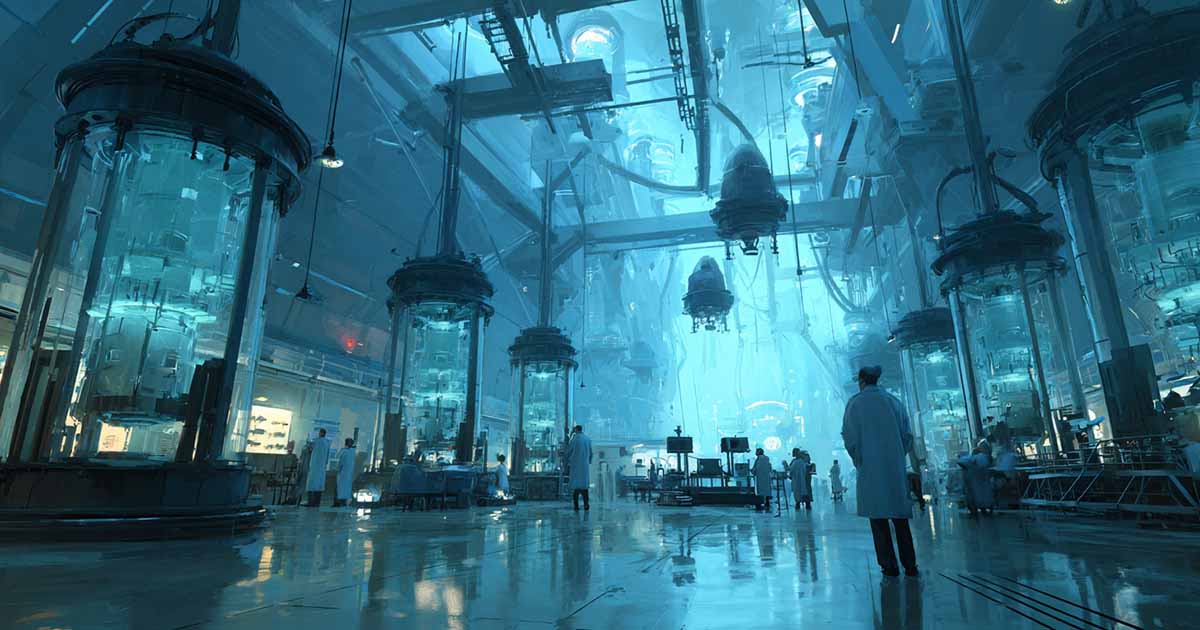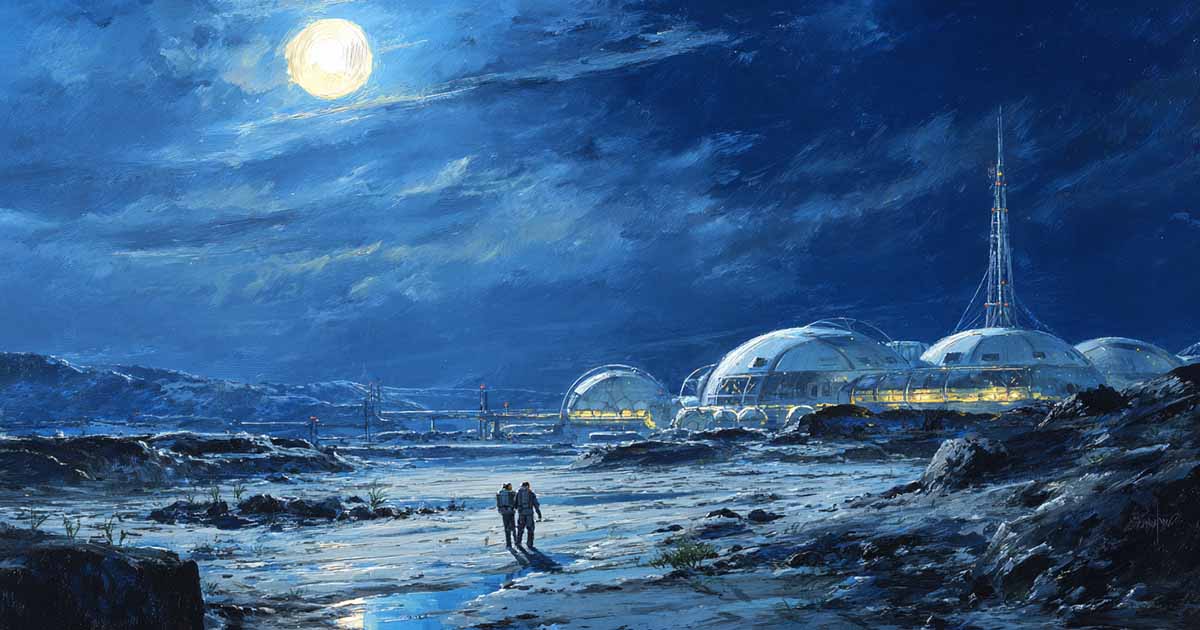The Quiet Brilliance of ‘The Gods Themselves’ by Isaac Asimov
Isaac Asimov’s “The Gods Themselves” explores the cost of progress and the limits of reason. A clear, thoughtful review of one of his most daring and enduring works of science fiction.

In 1972, Isaac Asimov released “The Gods Themselves” at a time when science fiction was shifting direction. New Wave writers were exploring psychology and inner worlds, while the older masters of the genre still believed in logic, discovery, and reason. Asimov had built his career on that foundation of clear thinking and steady optimism, yet this novel showed a different side of him. It reached for mystery, emotion, and moral depth in a way that surprised even his most loyal readers.
By then, Asimov was already famous for “Foundation,” “I, Robot,” and “The End of Eternity.” He was known as the author who brought science to life and made complex ideas understandable to ordinary readers. With “The Gods Themselves,” he stepped beyond his usual confidence in progress and asked what might happen when intelligence outpaces wisdom.
The novel carries the calm tone of scientific thought but the heartbeat of a parable. It questions whether knowledge can ever be free of consequence and whether the pursuit of power is always noble. That question gives the book its lasting strength. “The Gods Themselves” remains a striking moment in Asimov’s career when faith in reason met the limits of human foresight.
The Premise and Structure

“The Gods Themselves” is built on one of Asimov’s most elegant scientific ideas. The story begins with the discovery of a process that allows the exchange of matter between our universe and another one where the laws of physics are different.
This process, called the Electron Pump, produces endless clean energy for Earth. To the world, it appears to be a perfect solution to every modern problem. To a few clear-minded scientists, it seems far too convenient. Something in the balance of nature has shifted, and the cost may be greater than anyone can imagine.
The novel unfolds in three distinct parts that mirror its moral design. The first is set on Earth and follows the human excitement over a boundless new power source. It shows the politics, pride, and competition that arise whenever discovery promises fame and fortune.
The second moves to a parallel universe inhabited by beings of soft matter, whose lives and thoughts follow physical laws unlike our own. Here, Asimov writes with rare imagination, exploring an alien world that feels both beautiful and perilous.
The third section returns to human hands, set in the cool, efficient environment of a lunar colony where a few independent thinkers struggle to correct what others have ignored.
Each section has its own rhythm and tone. Together they form a study of discovery, denial, and redemption. Asimov’s structure reinforces his theme that knowledge without humility can endanger the very reality that makes discovery possible.
The shifting settings—from Earth to an alien realm and then to the Moon—trace a journey from comfort to confrontation, and finally to cautious hope. It is a design both precise and daring, revealing Asimov’s belief that reason alone is not enough without the courage to question its results.
Themes and Ideas
“The Gods Themselves” turns on the idea of responsibility. Asimov presents a world that celebrates discovery without considering its price. The Electron Pump represents both triumph and temptation, a gift that could destroy the hands that built it. The author reminds readers that intelligence without restraint can become its own form of ignorance.
Scientific pride is the novel’s driving fault. Asimov portrays researchers who trust their formulas more than their judgment. They are not evil, only complacent, convinced that their success proves their virtue. Through them, he demonstrates how arrogance can conceal itself beneath the language of reason.
The book also examines the weakness of institutions. Committees, departments, and governments act slowly even when danger is clear. Fear of ridicule or loss of reputation keeps men from speaking out. Asimov recognized that bureaucracy often resists the truth when it demands change.
In the parallel universe, the theme expands beyond human limits. The alien beings live by strange physical laws, yet their choices echo our own. They struggle between duty and emotion, intellect and instinct. Their world reflects the same moral conflict that drives human history.
Another theme is the moral responsibility that comes with knowledge. Every advance carries the possibility of harm as well as hope. Energy, invention, and discovery are not pure achievements unless guided by conscience. Asimov’s story warns that progress without moral clarity endangers both man and creation.
Yet the novel is not despairing. Beneath its warnings lies faith in human reason tempered by humility. Asimov believed that courage and curiosity, when properly combined, could correct errors and restore balance. The heroes are those who question the obvious and persist in the face of disbelief.
The book also speaks to the enduring need for wonder. Even as it explores error and pride, it never loses awe for the vastness of creation. That reverence separates the scientist from the opportunist. It is what keeps the pursuit of knowledge noble.
Through these ideas, Asimov bridges intellect and morality. “The Gods Themselves” becomes more than a story of science gone wrong. It is a meditation on how men should think, act, and believe in a universe that answers only to truth.
Style, Tone, and Craftsmanship

Asimov writes with the precision of a teacher. His sentences are clean, logical, and stripped of excess. He avoids ornament and trusts the clarity of thought to carry emotion. This simplicity lends the story a sense of authority that suits its scientific core.
His pacing is deliberate. Each section moves with the rhythm of its setting—measured on Earth, fluid in the alien realm, brisk on the Moon. The structure gives the reader space to think. Asimov invites reflection rather than shock, using patience to build tension rather than spectacle.
The dialogue follows the same pattern. His characters speak with directness, often explaining ideas rather than emotions. Some critics have found this dry, but the restraint suits the theme. Asimov’s people reveal themselves through reason and choice, not through dramatic speeches.
He also shows growth as a storyteller. In this book, he dares to explore emotion, even sensuality, in ways unfamiliar to his earlier work. The alien world allows him to discuss desire, fear, and sacrifice without sentimentality. It is his most vivid attempt to demonstrate that intelligence and feeling are not mutually exclusive.
The prose carries a tone of quiet inquiry. Asimov never preaches, yet his moral concern is clear. He writes as a man who believes that the pursuit of truth must include humility. Every page reflects his respect for logic balanced by conscience.
The novel’s craftsmanship lies in its control. The three parts differ in texture but not in purpose. Each serves as a lens through which the reader sees another layer of the same dilemma. This unity of design keeps the book steady even when the settings shift.
Compared with other writers of his time, Asimov stands between two eras. He shares the hard-science discipline of the Golden Age but reaches toward the introspection of the New Wave. The result is a rare combination of intellect and imagination.
His achievement in “The Gods Themselves” is not style for its own sake but mastery of structure in service of meaning. The language never distracts from the idea. It guides the reader through complexity with calm assurance, proving that clarity, not flourish, is the highest form of art.
When Reason Learns Reverence
“The Gods Themselves” remains one of Isaac Asimov’s most enduring works because it dares to question the very faith that shaped his career. He built his reputation on trust in the human mind, yet here he admits that intellect alone is not enough. The book honors science while reminding readers that wisdom begins with humility.
The novel’s power lies in its balance of caution and hope. It does not condemn progress but demands that it be guided by conscience. The message still fits the modern age, where energy, technology, and ambition move faster than reflection. Asimov’s story speaks quietly to every generation that believes new tools will solve old problems.
When it first appeared, the book won both the Hugo and Nebula Awards, confirming its place among the great works of its time. Its influence continues because it treats the future not as a playground but as a trust. It challenges the reader to think, to wonder, and to respect the mystery of creation.
In the end, “The Gods Themselves” is not about machines or power but about character. It asks whether man can be both brilliant and good. That question still deserves an honest answer.

